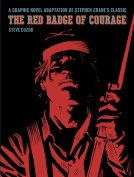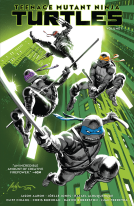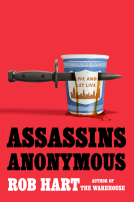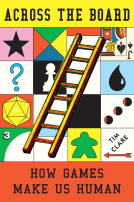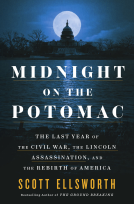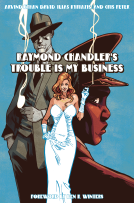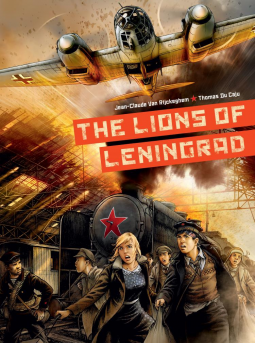
The Lions of Leningrad
by Jean-Claude van Rijckeghem; Art by Thomas Du Caju
This title was previously available on NetGalley and is now archived.
Send NetGalley books directly to your Kindle or Kindle app
1
To read on a Kindle or Kindle app, please add kindle@netgalley.com as an approved email address to receive files in your Amazon account. Click here for step-by-step instructions.
2
Also find your Kindle email address within your Amazon account, and enter it here.
Pub Date Mar 16 2022 | Archive Date Mar 07 2022
Talking about this book? Use #TheLionsofLeningrad #NetGalley. More hashtag tips!
Description
On January 27, 1962, a concert at the Maly Theatre in Leningrad is interrupted by a gunshot and an ex-state prisoner is arrested. At the police station, the mysterious gunman recalls the early summer of 1941… When the German army begins its invasion of Soviet Russia, four children are evacuated to the countryside: Maxim, the son of a senior Communist Party official; Pyotr, the son of writers; Anka, the daughter of a concert violinist; and Grigory, the son of a pilot that was executed for insubordination. The farm where they are staying is attacked and the train that is supposed to take them to safety is blown to bits by German planes. The four children must fight through enemy lines to get back to their families in Leningrad. But all that awaits them is the beginning of one of the most prolonged and destructive sieges in history. Two and half desperate years that will push their friendship — and their lives—to the limit.
Advance Praise
“The Lions of Leningrad captures a critical time during World War II with dramatic flair.” —Foreword Reviews
“A gripping, action-filled story…. . The artwork is top-notch and the script is very well done.” —Arcadia Pod
Available Editions
| EDITION | Paperback |
| ISBN | 9781682477922 |
| PRICE | $19.95 (USD) |
Featured Reviews
This book grew on me as I read more. The first thing I noticed was the artwork. I thought the drawings were exquisite and would give them 5 stars, but the dialog at the beginning was rather childish. I guess with the characters being teens and more immature. Then as the graphic book progressed, them getting older, the dialog didn’t bother me as much.
The story was interesting. More focused on the characters’ lives and interactions during the time period, as opposed to a more historical “nonfiction” novel. It mostly revolved around Anka and who she loved – because all of the boys loved her. One thing that bothered me is that it ended rather abruptly.
Thanks Dead Reckoning and Netgalley for giving the opportunity to access this ARC. I really enjoyed the book and although it probably wouldn’t be a super popular book in our library, I think many of the high school students would enjoy the story.
The reign of Joseph Stalin was a grueling time for citizens of the U.S.S.R., and in The Great Patriotic War (WWII) tensions were perhaps at their worst. After many of his supposed five-year plans for the development of the national economy flopped over and over again, he seemed to be on the defensive more so than even during the purges in the 1930s. Anything merely resembling a hint of resentment for how the overall war effort was going was met with banishment, imprisonment, or even death. Perhaps no enemy was greater to the Russian people than Stalin himself. That is the backdrop for The Lions of Leningrad by Jean-Claude van Rijckeghem; Art by Thomas Du Caju, a new comic coming soon from The U.S. Naval Institute Press and their comic imprint Dead Reckoning. Set during the early years of the disastrous Siege of Leningrad in 1941, this book tells of the story of a group of children that have childhood yanked from their hands and are forced into the bleak world of one of the worst wars of all time. They witness first hand that war brings out the worst in everyone, especially when starvation brings villains out of every nook and cranny to prey on the weak. The War also forces them to make some decisions they can never take back…
“On January 27, 1962, a concert at the Maly Theatre in Leningrad is interrupted by a gunshot and an ex-state prisoner is arrested. At the police station, the mysterious gunman recalls the early summer of 1941… When the German army begins its invasion of Soviet Russia, four children are evacuated to the countryside: Maxim, the son of a senior Communist Party official; Pyotr, the son of writers; Anka, the daughter of a concert violinist; and Grigory, the son of a pilot that was executed for insubordination. The farm where they are staying is attacked and the train that is supposed to take them to safety is blown to bits by German planes. The four children must fight through enemy lines to get back to their families in Leningrad. But all that awaits them is the beginning of one of the most prolonged and destructive sieges in history. Two and half desperate years that will push their friendship — and their lives—to the limit. “
Perhaps one of the more depressing things in this largely tragic story was a depiction of Stalin’s policy on altering of history and news to basically hide any sort of issues The State might be having at any given time. At one point, the children dubbed “The Lions of Leningrad” nearly meet their fates in a German bombing of a train station. The station was mostly full of children at the time as there was a policy in place to re-locate to safer areas during enemy bombing campaigns. “The Lions” escape and are forced to walk home for days after narrowly missing certain murder by a German tank corps, only to find that their ordeal officially “never happened”. Wiped clean from the books as nothing more than chalk from a slate, the deaths of thousands of kids were now rendered secret, and anyone heard talking about it may end up in a Gulag.
Another absolutely shocking thing that this book taught me was that cannibalism was an issue during the siege, depicted here as groups of roving madmen appear to murder and consume anyone unlucky enough to walk down the wrong alley at night. Truthfully, it wasn’t that common in the war, but deemed enough of a problem that the authorities were forced to classify different types of crimes committed by way of the consumption of human flesh. I know most prolonged sieges usually result in desperate measures like that, but seeing it dramatized in such a way was crazy. According to Wikipedia, Children even used to have a nursery rhyme about it:
“A dystrophic walked along
With a dull look
In a basket he carried a corpse’s arse.
I’m having human flesh for lunch,
This piece will do!
Ugh, hungry sorrow!
And for supper, clearly
I’ll need a little baby.
I’ll take the neighbours’,
Steal him out of his cradle.”
While this book has many instances of tragedy from cover to cover, I was happy to see a somewhat bittersweet ending and apparent justice for some of the wrongs done throughout the story. While “The Lions of Leningrad” were never the same after the summer of 1941, a glimmer of their original happiness shines on in 1962. This was a gripping, action-filled story of innocence lost and bitter choices, and I was sad to see it end when it did. The artwork is top-notch and the script is very well done. I’m not sure I’ve read anything by either of the creators as of yet, but I will have to see if Amazon has anything else in English by the author (as I believe he is Belgian, and publishes in Dutch), as I enjoy historical comics such as this and am always looking for more creators to follow. Hopefully this one does well, and more are brought over! This book is a paperback edition of both issues of the original comic which previously were only available digitally via Europe Comics in English. If I am not mistaken, this was the same way another book by Dead Reckoning, The Jewish Brigade, was published.
Keep your eyes peeled for this exciting historical comic in early 2022, as with anything The USNI Press and Dead Reckoning produce it is top-notch quality and shines light on a segment of military and war history left untouched by many other historians.
Readers who liked this book also liked:
Raymond Chandler; Arvind Ethan David
Comics, Graphic Novels, Manga, Mystery & Thrillers
David Nayfeld; Joshua David Stein
Children's Nonfiction, Cooking, Food & Wine
